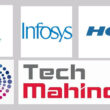The Gig economy is a rapidly growing workforce sector, offering a flexible way of earning for millions of people worldwide. By 2027, over 50% of the US workforce is estimated to be working in some form of the gig economy. While this has provided workers with greater flexibility, it has created new financial challenges. In this article, we will explore the gig economy and its impact on financial management for workers.
What is the Gig Economy?
The gig economy guides to a labor market consisting of short-term contracts or freelance work instead of permanent jobs. Workers in the gig economy are usually self-employed, earning income by providing services to clients or customers. The term “gig” refers to a worker’s individual jobs or tasks, such as driving for Uber or Lyft, delivering food for Grubhub or DoorDash, or completing freelance work for businesses or individuals.
Advantages of the Gig Economy
The gig economy has become increasingly popular due to its many advantages, such as:
Flexibility
One of the essential advantages of the gig economy is its flexibility. Gig workers can decide when and where they work, allowing them to balance their work with other commitments like family, education, or hobbies. This flexibility is particularly beneficial for individuals who prefer non-traditional work hours or require more control over their schedules.
Income
In the gig economy, workers can earn more income than in traditional jobs. Many gig workers can set their rates, and their income is directly tied to the number of gigs they complete. This can be particularly helpful for individuals with specialized skills or willing to work longer hours.
Opportunity
The gig economy provides individuals more opportunities to work in different industries and gain new experiences. Workers can take on different gigs, allowing them to explore their interests and new career paths. This can be particularly practical for individuals who are unsure about their career goals or want to gain more experience before committing to a specific job or industry.
Challenges of the Gig Economy

While the gig economy offers many benefits, it also presents several challenges for workers, including:
Lack of Benefits
Most gig employees are classified as independent contractors, which means they are not entitled to traditional employee benefits like health insurance, paid time off, or retirement plans. This can make it difficult for workers to save for the future and manage their expenses, particularly during low or inconsistent income periods.
Income Instability
Gig workers do not have a guaranteed income, and their earnings can be unpredictable. This can make it challenging for workers to plan and budget for expenses, especially recurring rent or car payments.
Self-Employment Taxes

Gig workers are responsible for paying their taxes, which can be complex and time-consuming. They must also pay self-employment taxes, higher than traditional payroll taxes.
Financial Management Strategies for Gig Workers
To manage their finances effectively, gig workers need to adopt specific strategies, including:
Tracking Expenses
Gig workers should track all their expenses to understand their income and expenses clearly. They can use online tools like Mint or QuickBooks to keep track of their finances and create a budget that reflects their income and expenses.
Saving for Taxes
Gig workers should set aside a portion of their income to pay self-employment taxes. It’s recommended that workers save 25-30% of their income to cover taxes.
Building an Emergency Fund
Since income in the gig economy can be unpredictable, gig workers should build an emergency fund to cover unexpected expenses.
Diversifying Income Sources
Gig workers can also manage their finances by diversifying their income sources. Instead of relying on one primary source of income, they can take on different types of gigs or explore new revenue streams to increase their income.
Negotiating Rates
Gig workers should negotiate their rates with clients or customers to ensure they are paid fairly. They can research market rates for their services to determine an appropriate rate and negotiate with clients to earn a higher income.
Investing in Retirement
Gig workers can also invest in retirement plans, such as IRAs or Solo 401(k)s, to save for the future. These plans offer tax advantages and help gig workers build wealth over time.
The Future of Workforce Financial Management
As the gig economy continues to grow, financial management for workers will become increasingly important. New financial management tools and services are emerging to help gig workers manage their finances effectively, such as digital banks, budgeting apps, and tax preparation services.
Additionally, there is growing interested in policy solutions to support gig workers, such as providing access to health insurance, paid time off, and retirement plans. As the gig economy becomes a more significant part of the workforce, it will be essential to address these issues to ensure gig workers have the support they need to thrive financially.
Conclusion
The gig economy provides workers with many opportunities but also presents new challenges for managing finances. To manage their finances effectively, gig workers must adopt specific financial management strategies, such as tracking expenses, saving for taxes, and diversifying income sources. As the gig economy grows, addressing these challenges and supporting gig workers will be essential to ensure they can thrive in this new economy.
FAQs
1. Is it possible to earn full-time in the gig economy?
Yes, it is possible to make a full-time income in the gig economy. Many gig workers earn a significant income by taking on multiple gigs or specializing in high-demand services.
2. What are the most popular gigs in the gig economy?
The most popular gigs in the gig economy include driving for ride-sharing services like Uber or Lyft, delivering food for companies like Grubhub or DoorDash, and completing freelance work for businesses or individuals.
3. Do gig workers have to pay taxes?
Yes, gig workers are responsible for paying their taxes, including self-employment taxes. They should set aside a portion of their income to cover taxes.
4. Can gig workers access benefits like health insurance or retirement plans?
Most gig employees are classified as independent contractors and are not entitled to traditional employee benefits. However, there is growing interested in policy solutions to provide gig workers with access to benefits like fitness insurance, paid time off, and retirement plans.
5. How can gig workers manage their income instability?
Gig workers can manage income instability by tracking their expenses, saving for taxes, diversifying income sources, negotiating rates, and building an emergency fund. These strategies can help gig workers manage their income and expenses effectively.









